

SUBJECT CHOICE EXAMPLES
ELECTIVE SUBJECT DESCRIPTIONS
CLC CONTACTS



SUBJECT CHOICE EXAMPLES
ELECTIVE SUBJECT DESCRIPTIONS
CLC CONTACTS
You can read this Course Guide page by page by clicking on the navigation bar arrows along the bottom of the screen to advance forward or backward or jump ahead to different sections using the side menu, section menus and hyperlink icons.
The Home page allows you to see an overview of the whole guide at once and by clicking items in this interactive menu you can skip ahead to any section.
The summary of Year 8 overview page features a linked menu which allows you to click on the subject name and jump to its full description.
CLC CONTACTS
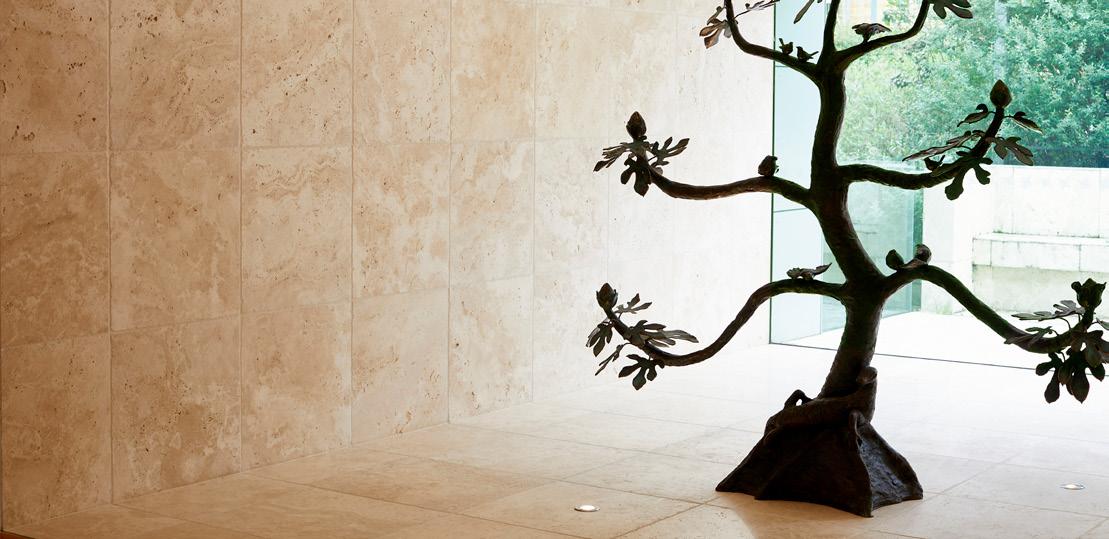
The CLC Education charter is a powerful document underpinned by the College Vision and values of Justice, Love, Compassion and Hope.
It sets high expectations while encouraging personal growth and community engagement. Students are inspired to set ambitious goals, take thoughtful risks in their learning, and celebrate excellence in its many forms—whether academic, creative, or personal
The CLC Education Charter embodies five interrelated elements - Excellence, Wisdom, Belonging, Courage, and Responsibility. These values guide students in their daily learning and interactions, preparing them to embrace opportunities and meet the challenges of their future with confidence.
The Year 8 curriculum has been designed to provide a rich variety of challenging and stimulating learning experiences. It supports students in developing self-reliance, confidence in their abilities, and the skills needed to collaborate effectively with others.
This guide outlines the subjects offered at Year 8. Students will continue with core studies while also selecting from a range of electives. The elective program provides opportunities to explore areas of personal interest, extend individual strengths, and experience learning that is both challenging and rewarding.
Catherine Jackson Assistant Principal Learning and Teaching

INTRODUCTION
How to use this guide
YEAR 8 LEARNING PROGRAM LANGUAGES
SUBJECT SELECTION PROCESS
Year 8 Subject choice examples
YEAR 8 ELECTIVE SUBJECTS
Dance
Digital Technologies
Drama
Food Studies
Music
STEAM-MAD
Visual Art
Visual Communications & Design
CLC CONTACTS
YEAR 8 LEARNING PROGRAM
YEAR 8 LANGUAGES PROGRAM
SUBJECT CHOICE EXAMPLES
ELECTIVE SUBJECT DESCRIPTIONS
CLC CONTACTS

Students in Year 8 will study a combination of compulsory and elective subjects.
In addition to these subjects, students will choose two elective units per semester from the range of subject areas below right.
Students are strongly encouraged to choose a broad range of electives; ie. from at least three curriculum areas. This will enhance the development of skills and capabilities required in the Senior study program. These electives will provide students with choice and responsibility for their own learning.
ALL STUDENTS WILL BE REQUIRED TO STUDY
RELIGIOUS EDUCATION
ENGLISH
HEALTH AND PHYSICAL EDUCATION
HUMANITIES
MATHEMATICS
SCIENCE
LANGUAGES: INDONESIAN OR ITALIAN
LEARNING AREAELECTIVE SUBJECT
PERFORMING ARTS
VISUAL ARTS AND TECHNOLOGY
DRAMA
DANCE
MUSIC
DIGITAL TECHNOLOGIES
FOOD STUDIES
VISUAL ART
VISUAL COMMUNICATION & DESIGN
CROSS CURRICULAR STEAM-MAD
YEAR 8 LEARNING PROGRAM
YEAR 8 LANGUAGES PROGRAM
SUBJECT CHOICE EXAMPLES
ELECTIVE SUBJECT DESCRIPTIONS
CLC CONTACTS

All students study a language to the end of Year 9 and can then elect to continue their studies through to Year 12.
Students have the opportunity to participate in a range of cultural activities, competitions and national language testing. Interaction with young people from Indonesian and Italian speaking countries and with other learners of the languages is facilitated in language classes and beyond, through contact with schools in those countries and using the internet. The chance to take part in study tours to Indonesia and Italy is also offered periodically to students in Years 10 to 12.
Listening, speaking, reading and writing skills are developed when learning a second language. Topics are relevant to the lives of young people both in Australia and in Indonesian or Italian speaking communities. Students will be encouraged to gain an understanding and appreciation of the cultural similarities and differences in these communities.
Information and Communication Technology (ICT) is integrated into many aspects of Language courses. It can provide a medium for authentic interaction, as well as for learning vocabulary, improving pronunciation and independent and collaborative learning.
WHICH LANGUAGE SHOULD I LEARN?
When deciding which language to select, you should consider the following:
• the language you are enjoying
• the language that would be beneficial for your future
• the culture you would like to know more about.
If you enjoy and are doing equally well in both languages and do not have a preference for the one you would like to continue, then tick the either/or box.
Homework will involve tasks, which aim to consolidate work introduced in class and in some cases, to provide opportunities for extension. It is also essential that students set aside regular time for learning new vocabulary and grammatical items.
SUBJECT CHOICE EXAMPLES
ELECTIVE SUBJECT DESCRIPTIONS
CLC CONTACTS

SEMESTER 1
COMPULSORY
RELIGIOUS EDUCATION FOOD STUDIES DRAMA
ENGLISH
HEALTH AND PHYSICAL EDUCATION
HUMANITIES
LANGUAGE
MATHEMATICS
SCIENCE
YEAR 8 LEARNING PROGRAM YEAR 8 LANGUAGES PROGRAM
SUBJECT CHOICE EXAMPLES
ELECTIVE SUBJECT DESCRIPTIONS
CLC CONTACTS
SEMESTER 2
COMPULSORY
RELIGIOUS
ENGLISH
HEALTH AND PHYSICAL EDUCATION
HUMANITIES
LANGUAGE
MATHEMATICS
SCIENCE
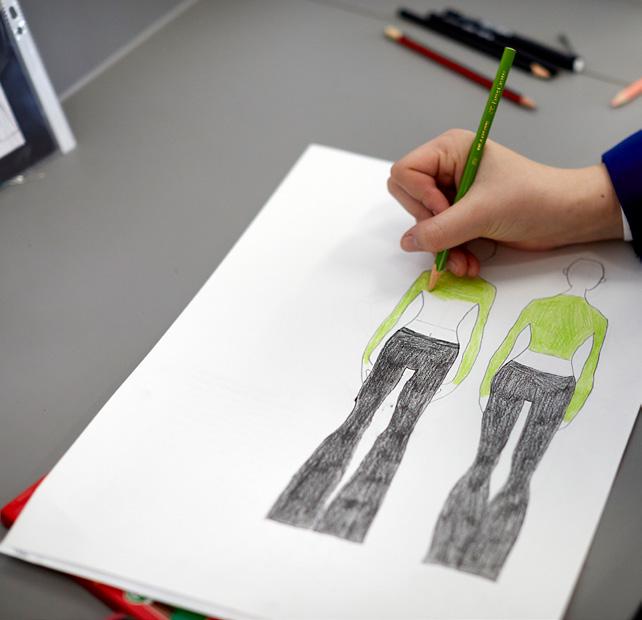
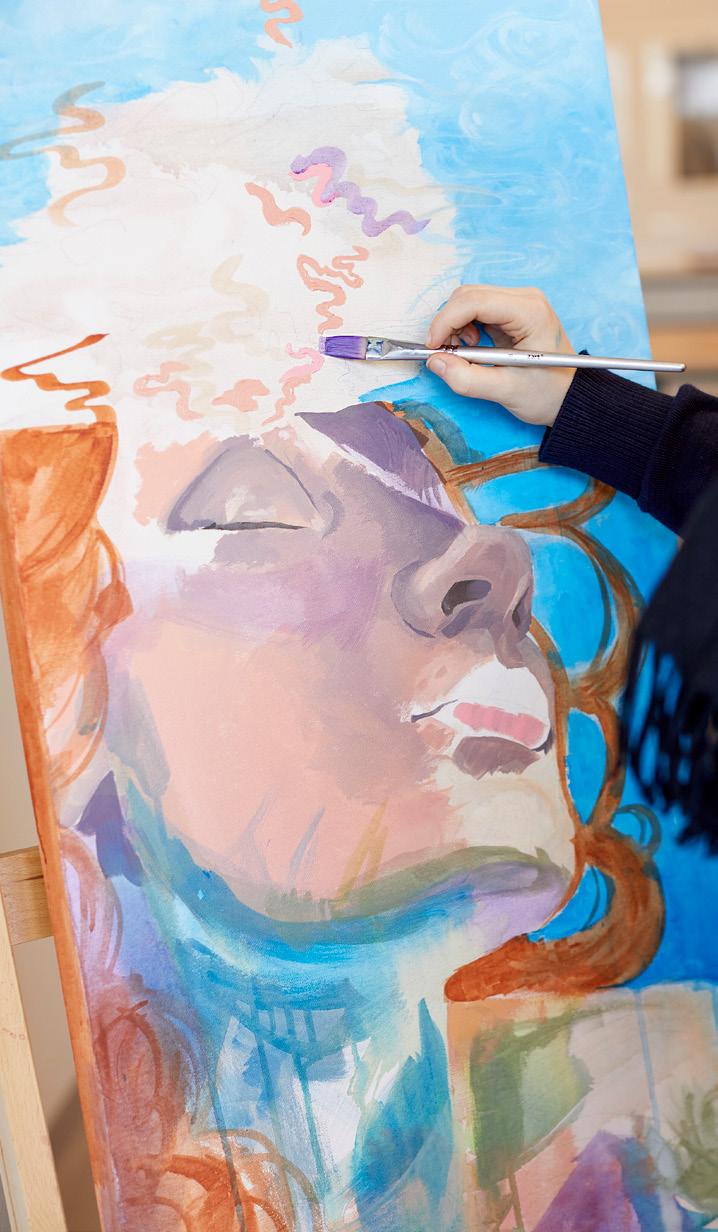
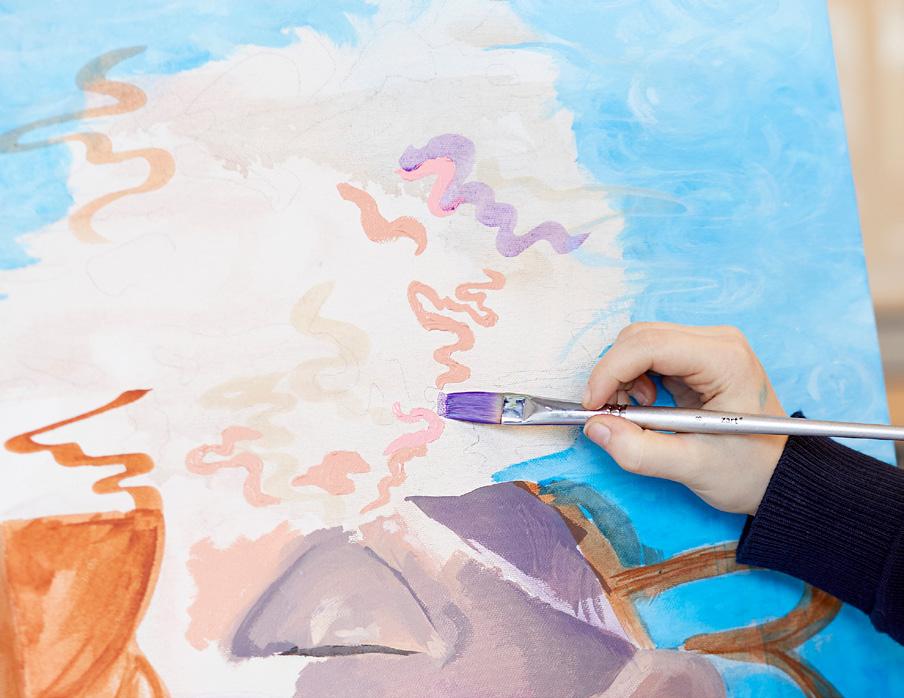
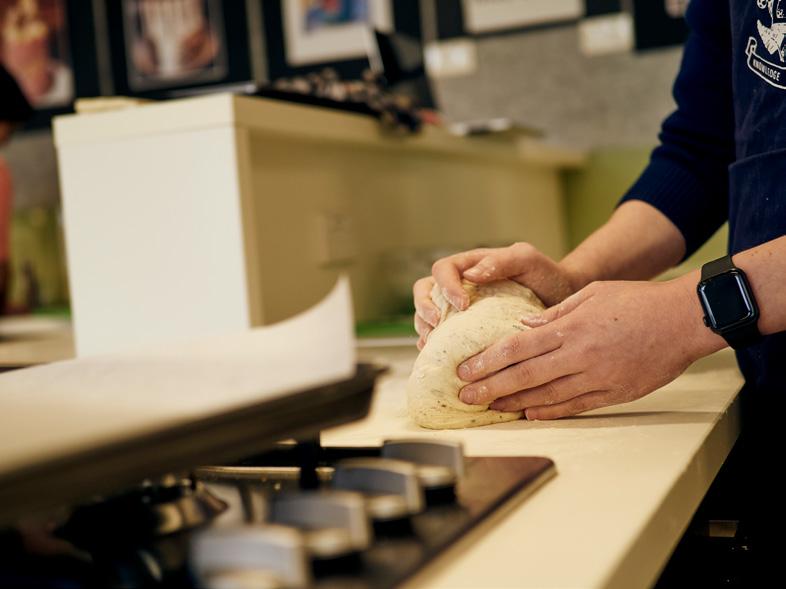
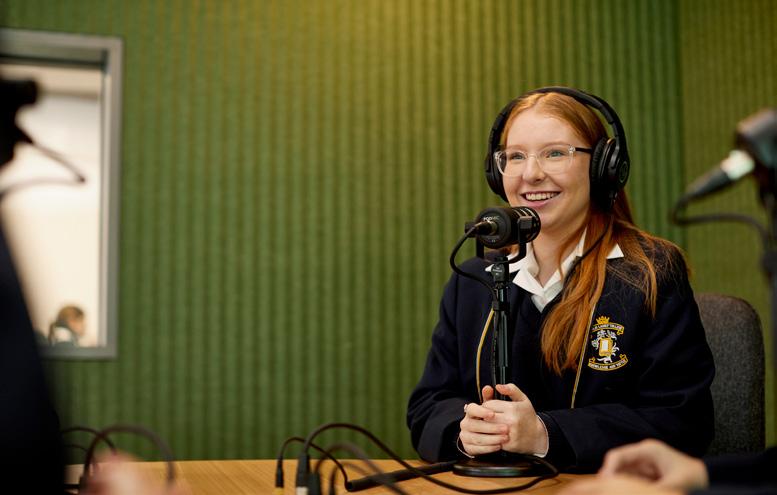
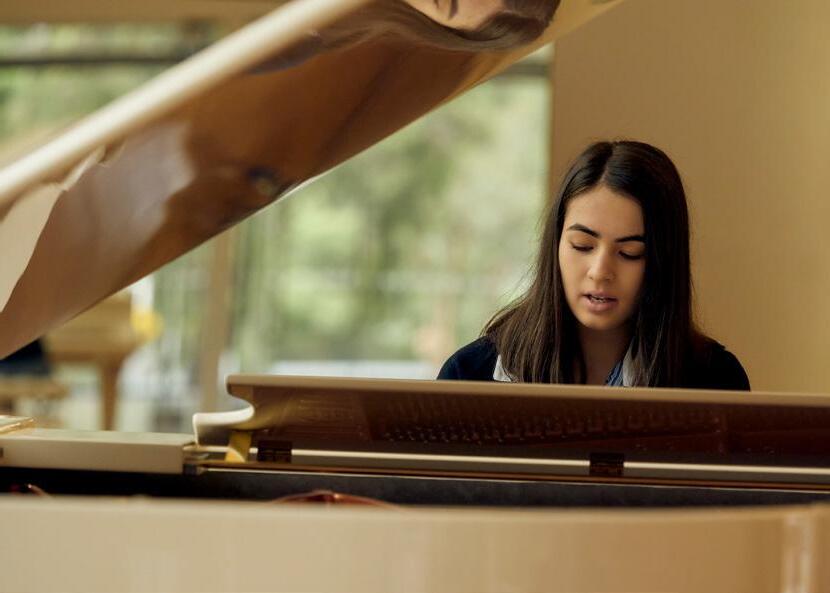
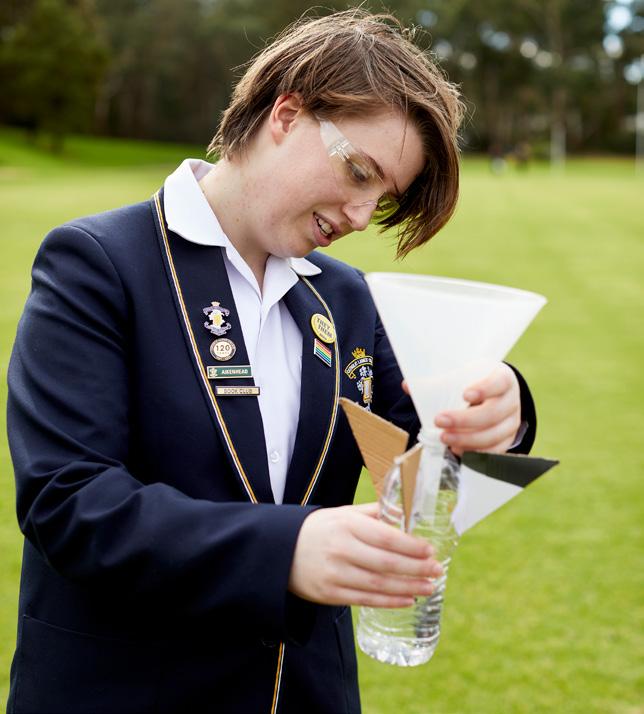

PERFORMING ARTS Drama Dance Music
VISUAL ARTS AND TECHNOLOGY
Food Studies
Digital Technologies
Visual Art
Visual Communication & Design
CROSS CURRICULAR STEAM-MAD
YEAR 8 LANGUAGES PROGRAM
SUBJECT CHOICE EXAMPLES
ELECTIVE SUBJECT DESCRIPTIONS
CLC CONTACTS

YEAR 8 LEARNING PROGRAM
YEAR 8 LANGUAGES PROGRAM
SUBJECT CHOICE EXAMPLES
ELECTIVE SUBJECT DESCRIPTIONS
CLC CONTACTS
FOUR UNITS TO BE CHOSEN FOR THE YEAR
PERFORMING ARTS
DESCRIPTION
We all need a little more Drama in our lives! In Year 8 Drama, students work with scripts and create their own performance work, applying production elements such as props and costumes. The aim is to build confidence, create connections and explore being in someone else’s shoes.
In Drama, we collaborate in groups to devise, interpret and present different Drama works. Expressive and performance skills are applied to develop a range of characters.
DESCRIPTION
PERFORMING ARTS
In Year 8, students learn about the choreographic process – the building blocks of making a dance. Students will work with different stimuli to develop a range of performances, while applying safe dance technique. The Elements of Dance guide our students to understand how their body is used as an instrument to tell stories. It’s all about collaborating, creating and celebrating!

YEAR 8 LEARNING PROGRAM
YEAR 8 LANGUAGES PROGRAM
SUBJECT CHOICE EXAMPLES
ELECTIVE SUBJECT DESCRIPTIONS
CLC CONTACTS
PERFORMING ARTS
DESCRIPTION
In Year 8 Music, you will make and listen to music, both on your own and with others — your classmates, teachers, and the school community.
The four main areas we focus on are:
• Performing – share your music with others
• Composition– beginning to write your own music
• Music practices – learn how to practise and develop music skills
• Respond and interpret – listen to music and explain what you hear.
You will learn how to change the elements of music (like melody, rhythm, and dynamics) and follow different music styles to improvise, compose and perform. You will use what you hear in songs you like to help you practise, rehearse and perform, both together and in parts, showing good technique and expression.
You will also learn music words and symbols to read, write and talk about music. You will explore how music is made in different styles and use this in your own performances and compositions. Finally, you will think about the musical choices you and others make, and how these choices share ideas and feelings in music from different cultures, times and places.

YEAR 8 LEARNING PROGRAM YEAR 8 LANGUAGES PROGRAM
SUBJECT CHOICE EXAMPLES
ELECTIVE SUBJECT DESCRIPTIONS
CLC CONTACTS
DESCRIPTION
In Year 8 Food Technology students develop a deeper understanding of food, nutrition and cooking techniques. Through practical activities and theoretical lessons students learn essential skills to enable them to make informed food choices, prepare meals, and understand broader food-related issues.
Year 8 Digital Technology builds on skills developed in Year 7 providing opportunities for students to further develop their innovation and problem-solving skills. Exploring the world of computers and coding students work collaboratively on digital projects. VISUAL ARTS AND TECHNOLOGY
DESCRIPTION
ARTS AND TECHNOLOGY
FOUR UNITS TO BE CHOSEN FOR THE YEAR

VISUAL ARTS AND TECHNOLOGY
DESCRIPTION
Year 8 Visual Art allows students to explore and develop their interests in art, making and creating. This course will introduce you to a wide variety of techniques, materials and artists. and gain a deeper understanding of the cultural and historical context of art.
Through ‘hands on’ practical activities you will develop a variety of art skills across the mediums of painting, mixed media, drawing and lino printing.
Visual Communication & Design
DESCRIPTION
Studying Visual Communication and Design in Year 8, students learn how to analysis images to understand the messages designers portray in their work. They will discover how design enriches our world combining creativity and functionality. Students will develop drawing skills as they research, sketch, plan and present design ideas. Students will use computer programs to produce designs that serve a specific communication purpose.
VISUAL ARTS AND TECHNOLOGY

SUBJECT CHOICE EXAMPLES
ELECTIVE SUBJECT DESCRIPTIONS
CLC CONTACTS
FOUR UNITS TO BE CHOSEN FOR THE YEAR
DESCRIPTION
STEAM-MAD empowers students to use their Science, Technology, Engineering, Arts and Maths knowledge to create positive change and ‘make a difference’ in the world. In this subject, Year 8 students will consolidate and strengthen their STEAM skills and use them to innovate and generate solutions to a variety of challenges. Students will be challenged to consider how they can use their STEAM learnings to be a responsible, global citizen of the world and make a positive impact on their local and global communities.
Additionally, students will navigate this through a design thinking framework by investigating, generating, producing and evaluating and practising the key 21st Century skills of critical thinking, creativity, collaboration and communication.
Learning activities will include both short and longer inquiries to generate curiosity and awareness but also to problem solve real world solutions.

SUBJECT CHOICE EXAMPLES
ELECTIVE SUBJECT DESCRIPTIONS
CLC CONTACTS
CATHERINE JACKSON Assistant Principal Learning & Teaching
OLIVIA BOLAND Head of Learning – Assessment, Reporting & Exams
ANNELIESE MAZNIOVSKI Academic Pathways Coordinator
ENGLISH LORRAINE CONNELL
HEALTH & PHYSICAL EDUCATION
NATALIE ALEXANDER
HUMANITIES
STEPHANIE JAMES
LANGUAGES
WENNY HOLLINGDALE
MATHEMATICS
MARTINA ABRAHAMS
PERFORMING ARTS
MICHAEL BROWN
RELIGIOUS EDUCATION
CAREY WEBSTER
SCIENCE
MICHELLE GRANT
VISUAL ARTS & TECHNOLOGY
GEORGE BOURBOURAS
LEARNING ENGAGEMENT COORDINATOR
SARANI DON
